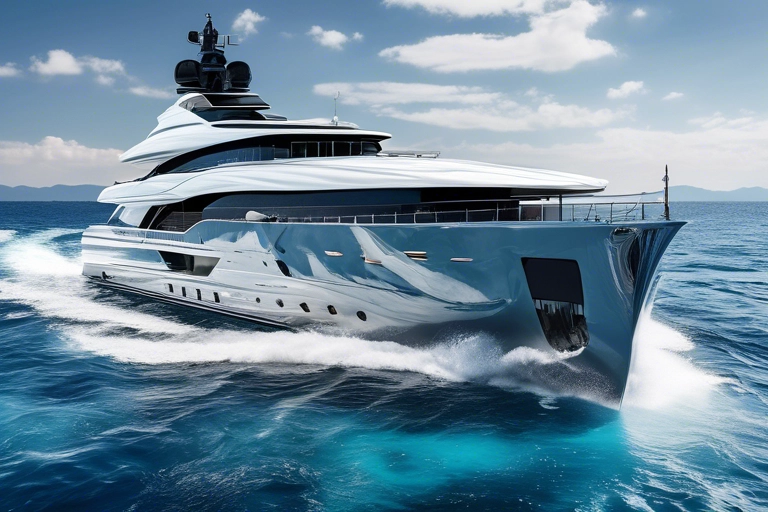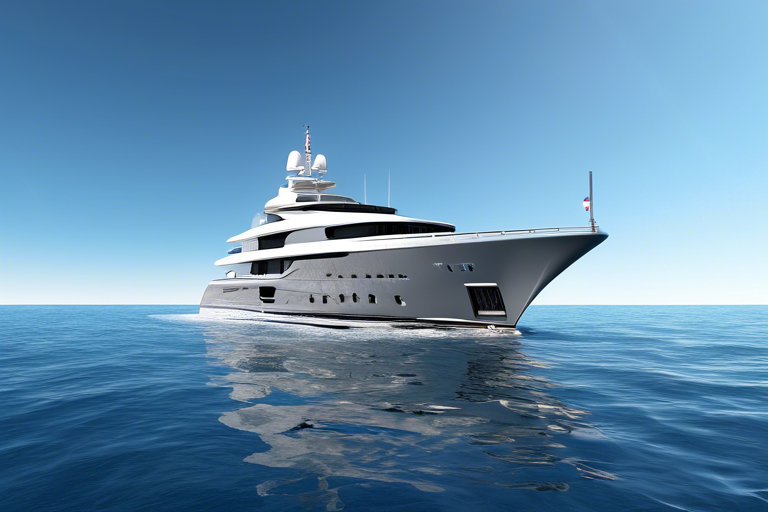Discover Luxury in

Frequently Asked Questions
Documentation:
Is the MOA the only important document associated with existing yachts?
No, the Memorandum of Agreement (MOA) is not the only important document associated with existing yachts. While the MOA is indeed crucial as it outlines the terms and conditions of the sale and purchase of the yacht, several other documents are equally important to ensure a smooth transaction and proper management of the yacht.
-
Bill of Sale: This document is essential as it serves as proof of the transfer of ownership from the seller to the buyer. It typically includes details such as the purchase price, the yacht's description, and the involved parties' information.
-
Certificate of Registry: This certificate is crucial for establishing the yacht's nationality and confirms its registration under a specific country's flag. It is necessary for legal and regulatory compliance, as well as for international travel.
-
Survey Reports: These are detailed inspections conducted by a marine surveyor to assess the yacht's condition. Surveys can include hull, engine, and rigging inspections, among others. The reports are vital for understanding the yacht’s current state and identifying any potential issues.
-
Insurance Documentation: Proper insurance is mandatory for protecting the yacht against various risks such as damage, theft, or liability. The insurance documents outline the coverage, terms, and conditions of the policy.
-
Maintenance Records: Keeping detailed records of all maintenance and repairs performed on the yacht ensures that it is well-maintained and can help in preserving its value over time. These records are also useful to the new owner for understanding the yacht's history.
-
Crew Contracts and Certifications: If the yacht employs a crew, having formal contracts and certifications is necessary for legal compliance and to ensure that the crew members are qualified and their rights are protected.
-
Operational Manuals: These manuals provide essential information on operating and maintaining various systems and equipment on the yacht. They are crucial for safe and efficient yacht management.
-
Safety Certificates: These certificates verify that the yacht meets safety standards and regulations, which is vital for the safety of those on board and for legal compliance.
For example, if a buyer attempts to purchase a yacht without a thorough survey report, they might overlook significant issues like structural damage or engine problems, leading to costly repairs later. Similarly, lacking proper insurance documentation can expose the yacht owner to significant financial risk.
In conclusion, while the MOA is a fundamental document in the process of buying and selling a yacht, it is just one part of a comprehensive set of documents required to ensure a secure, legal, and well-managed yachting experience.
Finance/Payment:
What about Value Added Tax (VAT)?
-
Bill of Sale: This document is essential as it serves as proof of the transfer of ownership from the seller to the buyer. It typically includes details such as the purchase price, the yacht's description, and the involved parties' information.
-
Certificate of Registry: This certificate is crucial for establishing the yacht's nationality and confirms its registration under a specific country's flag. It is necessary for legal and regulatory compliance, as well as for international travel.
-
Survey Reports: These are detailed inspections conducted by a marine surveyor to assess the yacht's condition. Surveys can include hull, engine, and rigging inspections, among others. The reports are vital for understanding the yacht’s current state and identifying any potential issues.
-
Insurance Documentation: Proper insurance is mandatory for protecting the yacht against various risks such as damage, theft, or liability. The insurance documents outline the coverage, terms, and conditions of the policy.
-
Maintenance Records: Keeping detailed records of all maintenance and repairs performed on the yacht ensures that it is well-maintained and can help in preserving its value over time. These records are also useful to the new owner for understanding the yacht's history.
-
Crew Contracts and Certifications: If the yacht employs a crew, having formal contracts and certifications is necessary for legal compliance and to ensure that the crew members are qualified and their rights are protected.
-
Operational Manuals: These manuals provide essential information on operating and maintaining various systems and equipment on the yacht. They are crucial for safe and efficient yacht management.
-
Safety Certificates: These certificates verify that the yacht meets safety standards and regulations, which is vital for the safety of those on board and for legal compliance.
For example, if a buyer attempts to purchase a yacht without a thorough survey report, they might overlook significant issues like structural damage or engine problems, leading to costly repairs later. Similarly, lacking proper insurance documentation can expose the yacht owner to significant financial risk.
In conclusion, while the MOA is a fundamental document in the process of buying and selling a yacht, it is just one part of a comprehensive set of documents required to ensure a secure, legal, and well-managed yachting experience.
How much can I expect to pay for yacht insurance?
The cost of yacht insurance is influenced by a variety of factors, making it difficult to provide a one-size-fits-all answer. However, understanding these factors can help you gauge what you might expect to pay for insuring your yacht. Generally, yacht insurance can range anywhere from 1.5% to 5% of the yacht's value per annum, but this is a rough estimate and can vary widely based on several key factors:
-
Value of the Yacht: The more valuable your yacht, the more you can expect to pay in insurance. Insurers will consider the purchase price, but also the cost to replace the yacht in the current market. For example, insuring a $500,000 yacht might cost significantly less than insuring a $5 million luxury vessel.
-
Type and Size of the Yacht: The type (sailing yacht, motor yacht, etc.) and size of the yacht also play a crucial role in determining insurance costs. Larger yachts or those designed for longer voyages can be more expensive to insure due to the increased risks associated with their operation.
-
Usage: How you use your yacht impacts insurance costs. A yacht used for private, recreational purposes might cost less to insure than one used for charter services or as a residence. The frequency of use and the regions you navigate (e.g., if you sail in areas prone to hurricanes or piracy) also affect premiums.
-
Age and Condition of the Yacht: Older yachts might incur higher insurance costs, particularly if they haven't been well-maintained. Insurers may require a marine survey to assess the yacht's condition before quoting a policy.
-
Safety Equipment and Features: Yachts equipped with modern safety features and navigational aids might be eligible for lower insurance premiums. This includes advanced radar systems, automatic identification systems (AIS), and fire suppression systems.
-
Owner’s Experience and Qualifications: Experienced yacht owners with a clean sailing and claims history can expect to pay less for insurance. Similarly, holding certain maritime qualifications can positively impact insurance costs.
-
Deductible: The amount you're willing to pay out of pocket in the event of a claim (deductible) can influence your premium. A higher deductible typically results in a lower annual premium.
Example: For a $1 million yacht, applying the 1.5% to 5% guideline, the annual insurance cost could range from $15,000 to $50,000. This range underscores the importance of the factors mentioned above. A newer, well-maintained $1 million yacht primarily used in safe, familiar waters and equipped with the latest safety features might be on the lower end of that spectrum. In contrast, an older model used for charters in areas with higher navigational risks could be on the higher end.
In conclusion, the cost of yacht insurance is highly variable and directly tied to the inherent risks associated with the yacht itself, how and where it's used, and the owner's experience and history. For the most accurate estimation, it's advisable to get quotes from multiple insurance providers, detailing all relevant information about your yacht and its usage.
What yacht costs should I expect post-purchase?
When you step into the world of yachting by purchasing your vessel, it's essential to understand that the initial purchase is just the beginning of your financial journey on the water. Owning a yacht involves a variety of ongoing costs that can be significant. Here’s a breakdown to help you navigate through these expenses:
-
Maintenance and Repairs: Like any vehicle, a yacht requires regular maintenance to keep it in good condition. This includes routine servicing of engines, systems checks, and hull cleaning to prevent fouling. Depending on the yacht's size and complexity, annual maintenance costs can range from 10% to 15% of the yacht’s purchase price. For example, on a $1 million yacht, expect to budget $100,000 to $150,000 per year for maintenance.
-
Dockage Fees: Where you decide to dock your yacht will significantly impact your annual costs. Prime locations in sought-after marinas command higher fees. These can vary widely from a few thousand dollars a year in some places to tens of thousands in premium locations like Monaco or Miami.
-
Fuel Costs: Fuel is a considerable expense, especially for those who use their yachts frequently or embark on long voyages. The cost will depend on the yacht's fuel efficiency, the distance traveled, and the current price of marine diesel or gas. A rough estimate for a mid-sized yacht might be $50,000 per year, but this can increase substantially based on usage.
-
Crew Salaries: If your yacht requires a crew, this will be one of the most significant ongoing expenses. A captain's salary alone can range from $70,000 to over $200,000 per year, depending on their experience and the size of the yacht. Additional crew members, such as chefs, engineers, and deckhands, will increase this cost.
-
Insurance: Just as with cars, yachts need to be insured. The annual premium varies by the yacht's value, size, and how it's used (e.g., private use vs. charter). Insurance can range from 1.5% to 3% of the yacht’s value per year. For a $1 million yacht, this means $15,000 to $30,000 annually in insurance premiums.
-
Winterization and Storage: If you live in a region where yachting is seasonal, you'll need to store and winterize your yacht during the off-season. This process protects the boat from the elements and can cost several thousand dollars annually, depending on the size and requirements of the yacht.
-
Registration and Regulatory Fees: Owning a yacht also comes with regulatory costs, including registration and licensing fees. These vary by jurisdiction but are generally not exorbitant. However, they are an essential part of the legalities of yacht ownership.
-
Miscellaneous Expenses: Don’t forget about other costs like telecommunications, internet, satellite TV, provisioning (food, drink, linens), and entertainment systems. These can add up, especially if you aim to maintain a luxurious ambiance aboard.
In summary, the post-purchase costs of yacht ownership are substantial and varied. Prospective yacht owners should carefully consider these expenses and budget accordingly. It's advisable to consult with a maritime financial advisor to get a detailed understanding of what these costs might be for the specific yacht you're considering.
Other:
Will my yacht be covered by a warranty?
What happens if the building process is delayed?
- Increased Costs:
- For the Client: Delays often lead to increased costs for the client. These can stem from extended financing periods, additional inspections, and potential penalties if the yacht was intended to meet specific deadlines, such as charter seasons or personal events.
- For the Builder: The shipyard may face increased labor costs, overtime pay, and potential penalties for breaching contractual deadlines. Prolonged use of materials and equipment also adds to operational expenses.
- Client Dissatisfaction: Delays can erode trust and satisfaction. The client may be disappointed, which can lead to strained relationships, negative reviews, and a tarnished reputation for the shipyard. This is particularly damaging in the luxury yacht industry, where customer experience and satisfaction are paramount.
- Operational Disruptions: A delay in one project can have a cascading effect, disrupting the shipyard’s schedule for other projects. This can lead to a backlog of orders, further delays, and challenges in resource allocation, affecting overall productivity.
- Economic Impact: Delayed construction can influence the broader economic ecosystem. Subcontractors, suppliers, and various service providers involved in the yacht-building process may experience financial strain due to postponed payments and reduced workflow.
- Legal and Contractual Issues: Many yacht-building contracts include clauses that address delays. If a delay breaches these terms, it might lead to legal disputes, claims for damages, or the need for arbitration. This not only incurs legal costs but also diverts focus from core business activities.
- Market Positioning: A delay might affect the yacht’s market positioning. For instance, missing the debut at a major boat show or launch event can reduce market visibility and potential sales opportunities. The client may also miss out on crucial charter seasons, impacting their return on investment.
What happens if a dispute occurs?
How is the governing law decided?
The governing law for yachts is a complex issue that can depend on several factors, including the yacht's flag state, the location of the yacht, and the nature of the legal matter in question. Here is a detailed explanation:
-
Flag State: One of the primary determinants of the governing law for any yacht is the country under whose flag the yacht is registered. This is known as the flag state. The flag state’s laws generally govern the yacht’s operations, including safety standards, crew qualifications, and environmental regulations. For instance, a yacht registered in the Bahamas will be subject to Bahamian maritime laws, while a yacht flying the flag of the United Kingdom would adhere to British maritime regulations.
-
Location: The geographical location of the yacht also plays a critical role in determining the governing law. When a yacht is within the territorial waters of a specific country, it must comply with that country’s local laws and regulations. For example, if a yacht registered in the Cayman Islands is sailing within U.S. territorial waters, it must adhere to U.S. laws and regulations, including customs, immigration, and environmental laws.
-
Contractual Agreements: The governing law can also be determined by contractual agreements, particularly in commercial contexts. For example, when a yacht is chartered, the charter agreement typically specifies a governing law clause that determines which jurisdiction’s laws will govern any disputes arising from the contract. If a yacht charter agreement stipulates that English law will apply, any legal disputes related to the charter will be resolved under English law, regardless of where the yacht is located.
-
International Conventions: Various international maritime conventions also impact the governing law for yachts. Treaties and conventions like the United Nations Convention on the Law of the Sea (UNCLOS) and the International Maritime Organization (IMO) conventions establish certain uniform standards that member countries incorporate into their national laws. These conventions can govern aspects such as pollution control, crew safety, and search and rescue operations.
Examples:
- Flag State Example: A yacht registered in Malta must comply with Maltese maritime law, including regulations on safety equipment and crew certification. The Maltese Maritime Authority oversees the enforcement of these regulations.
- Location Example: If the same yacht enters Italian territorial waters, it must also adhere to Italian regulations concerning navigation, environmental protection, and port entry procedures.
- Contractual Agreement Example: A yacht owner charters their vessel to a client, and the charter agreement specifies that any disputes will be governed by New York law. In the event of a dispute, the parties would resolve their issues according to New York’s legal standards, regardless of where the yacht is physically located.
In summary, the governing law for yachts is determined by a combination of the flag state laws, the regulations of the waters in which the yacht is sailing, and any contractual agreements in place. International maritime conventions also play a significant role in establishing overarching regulatory standards. Understanding these various factors is crucial for yacht owners, operators, and charterers to ensure compliance and effectively navigate legal issues.
Why are some yachts “not for sale to US residents while in US waters”?
The stipulation that some yachts are "not for sale to US residents while in US waters" revolves around a specific set of U.S. regulations, primarily aimed at controlling the commercial sale of foreign-flagged vessels within U.S. territories. This rule is not arbitrary but rooted in both legal and tax-related considerations.
-
Regulatory Framework: The primary legal backbone for this restriction is the Jones Act, also known as the Merchant Marine Act of 1920. The Jones Act mandates that transportation of merchandise between U.S. points is reserved for U.S.-flagged vessels. While this Act primarily concerns cargo and transportation, its implications extend to the sale of foreign-flagged yachts in U.S. waters. Selling a foreign-flagged yacht to a U.S. resident while the vessel is in U.S. waters could be construed as engaging in commerce, hence potentially violating the Jones Act.
-
Tax Implications: Another major consideration is taxation. When a foreign-flagged yacht is sold in U.S. waters, it may trigger substantial import duties and other taxes for the buyer. By stating that a yacht is not for sale to U.S. residents while it is in U.S. waters, sellers are essentially ensuring that any potential sale doesn't inadvertently create a significant tax burden for the buyer. Thus, many U.S. residents interested in purchasing such yachts may do so outside of U.S. waters to avoid these financial penalties.
-
Enforcement and Compliance: Compliance with these regulations is closely monitored by U.S. customs and other federal agencies. To avoid potential legal issues, many yacht owners and brokers explicitly note these restrictions in their listings. This practice helps ensure that all parties are aware of the regulations and take steps to comply, such as arranging for the sale or viewing of the yacht in international waters or in the yacht's flag state.
-
Examples: Consider a yacht flagged by a country in the European Union, docked in Florida and advertised for sale. If the yacht is sold to a U.S. resident while it remains in Florida, the transaction could be subject to U.S. laws and taxes, including import duties. By conducting the sale in international waters or possibly before the yacht enters U.S. waters, both parties can navigate around these regulations.
In summary, the restriction against selling foreign-flagged yachts to U.S. residents while in U.S. waters is a direct consequence of U.S. maritime law and taxation policies. This measure is designed to protect the U.S. maritime industry and ensure compliance with federal regulations, while also potentially safeguarding buyers from unexpected tax liabilities. Compliance with these laws requires careful planning and is a critical consideration for yacht transactions involving U.S. waters.
General:
Do I need a manager when buying a yacht?
What steps do I need to take with the crew when staffing a yacht?
Staffing a yacht requires a strategic and thorough approach to ensure that the crew is competent, cohesive, and capable of delivering exceptional service. Here are the essential steps to take when staffing a yacht:
-
Define Roles and Requirements:
- Identify Specific Positions: Determine the necessary positions such as captain, first mate, deckhands, engineers, chefs, stewards/stewardesses, etc.
- Detail Job Descriptions: Clearly outline the responsibilities, qualifications, and skills required for each role. For instance, a yacht chef should have culinary certifications and experience in preparing diverse cuisines.
-
Establish Qualification Standards:
- Certifications and Licenses: Ensure all crew members have the necessary maritime certifications. For example, a captain must hold a valid Captain’s License and possibly a Master’s Certificate depending on the yacht’s size.
- Experience: Specify the level of experience required for each role. For example, a first mate should have several years of experience working on similar-sized yachts.
-
Recruitment Process:
- Use Professional Agencies: Engage yacht crew recruitment agencies that specialize in maritime staffing. They can provide pre-vetted candidates with relevant experience.
- Advertise Open Positions: Post job openings on yachting industry-specific job boards and social media platforms to attract qualified candidates.
-
Conduct Thorough Interviews:
- Initial Screening: Perform preliminary phone or video interviews to assess basic qualifications and fit.
- In-Person Interviews: If possible, conduct face-to-face interviews to evaluate personality, communication skills, and professionalism. For example, you might ask situational questions to see how candidates handle high-pressure scenarios.
- Practical Assessments: Depending on the role, you may want to conduct practical tests, such as a trial cooking session for a chef or a technical skills assessment for an engineer.
-
Check References and Backgrounds:
- Professional References: Contact previous employers to verify work history and performance.
- Background Checks: Conduct thorough background checks to ensure there are no criminal records or other red flags.
-
Onboarding and Training:
- Orientation: Provide new crew members with an orientation that covers yacht policies, safety procedures, and job expectations.
- Training Programs: Implement training programs to ensure all crew members are up-to-date with the latest safety protocols and service standards. For instance, regular drills and training sessions on emergency procedures are crucial.
-
Foster Team Cohesion:
- Team Building Activities: Organize activities to build camaraderie and a sense of teamwork among the crew.
- Establish Communication Channels: Promote open and effective communication to ensure smooth operations and address any issues promptly.
-
Regular Performance Reviews:
- Feedback Mechanism: Provide regular feedback and conduct performance reviews to help crew members improve their skills and performance.
- Professional Development: Encourage continuous learning and professional development opportunities.
Example Scenario: Imagine you’re staffing a 150-foot luxury yacht. You’d start by defining the roles needed: a captain with at least 10 years of experience and a Master’s Certificate, a chef with a culinary degree and experience in international cuisines, stewards with high-end hospitality experience, and engineers with specialized maritime technical skills. You would use a reputable crew agency to source candidates and conduct a mix of video and in-person interviews, followed by practical assessments. Once hired, you’d provide comprehensive onboarding, regular training, and foster a collaborative environment through team-building activities, ensuring a top-notch crew ready to deliver an unparalleled yachting experience.
Almeida Yachts
Seek adventure without compromising on luxury.






